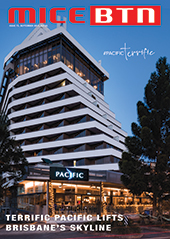Skidmore leaving CASA prematurely
- BTN News
- Thursday, 25 August 2016
The sudden resignation of Australia's Civil Aviation Safety Authority (CASA) chief Mark Skidmore has raised aviation sector concerns that lingering problems with over-regulation and other operational difficulties are heading for the too-hard basket despite concerted industry efforts to help sort out the mess.
Skidmore is less than two years into a planned five-year stint. He was appointed in October 2014, although effectively did not start the job until January 2015.
In addition to being CASA’s chief executive, he is also director of aviation safety. He will retain both roles until around October, pending temporary executive arrangements and the appointment of an appropriate successor.
This won’t be an easy task, not only because of the challenges at CASA but also because the job calls for a skill set that is not easily come by.
Skidmore’s own credentials are impeccable: A long RAAF career ending with a top position and the rank of air vice-marshal, test pilot achievements both in the military and private worlds and international aerospace consultancy work since his military retirement. He was made a member of the Order of Australia in 2010.
He is only 57, so is no burnt-out warrior.
His departure from CASA was unexpected, but some people had commented on his frustration in not getting further than he has.
In an email to CASA staff Skidmore said: “I have decided the time is right to make this move. I came on board at CASA to lead the organisation through a period of significant and difficult change and I am very proud of what we have achieved through the transformation program.
“We have been able to re-shape the way CASA operates and delivers its services.
“It is an appropriate time for me to hand over the leadership as CASA moves through the next phase of its improvement program.”
While the sector generally agrees that Skidmore made a difference, there is still a strong feeling that CASA (www.casa.gov.au) hasn’t yet got its act together fully, following botched safety investigations, patchy enforcement and problems in simplifying often-byzantine regulations.
Jeff Boyd, CASA’s chairman said Skidmore “has made an enormous and valued contribution to CASA and to aviation safety in this country.
“This has included a number of significant improvements including restructuring the organisation, the development and implementation of CASA’s new regulatory philosophy and the implementation of a just culture throughout the organisation.
“This has contributed positively to the way aviation regulations are developed and implemented in consultation with the aviation industry.”
Darren Chester, Federal minister for infrastructure and transport referred to Skidmore’s “distinguished service to the nation”.
“CASA has undergone significant change under the stewardship of Mr Skidmore as the organisation works through the recommendations required in response to the 2014 Aviation Safety Regulation Review.
“I remain focused on working with the board and staff of CASA, in partnership with industry to maintain and enhance our safety record and just as importantly to support a viable aviation industry,” he said.










